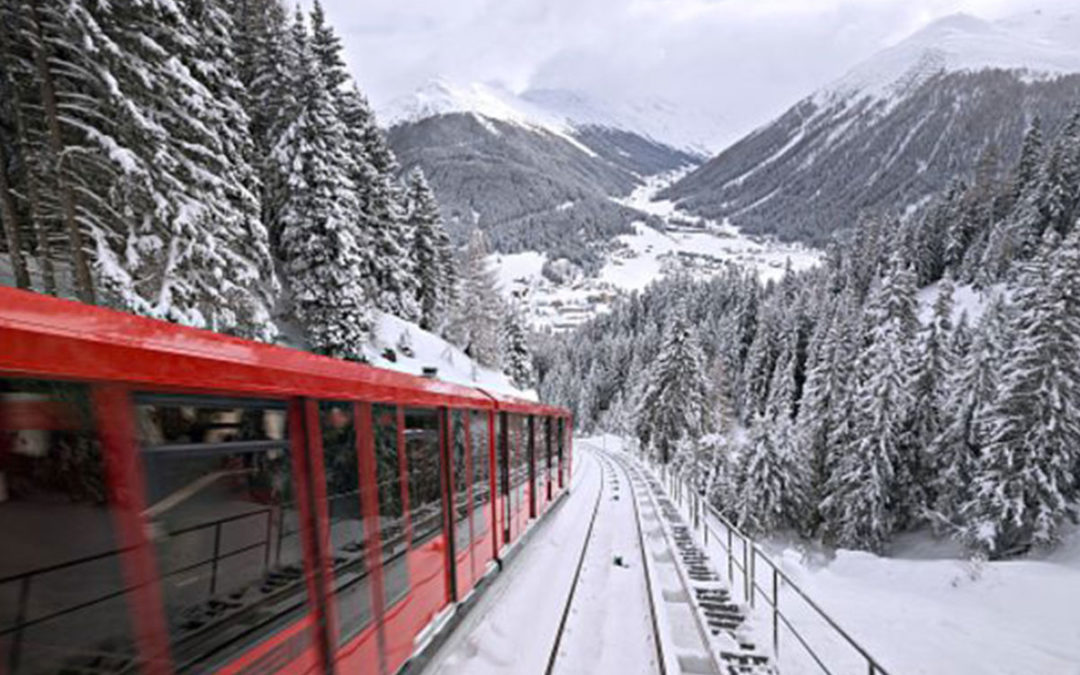The World Economic Forum’s annual Davos gathering—the most celebrated of all the international policy conferences—is so coveted an invitation that it is on the bucket list of almost every industry executive and government leader with global ambitions.
Who can blame them? Tucked into the Swiss Alps, the four-day summit, which begins on Tuesday, brings together international political and business leaders in Davos-Klosters, Switzerland, for a dubious combination of luxury, discourse and reputation polishing.
During the conference, the executive elites discuss how best to save the world from itself. That may sound flip, but the conference is where influential leaders talk about international problems, from climate change to economic insecurity to globalization, and then tell the rest of us how to fix them.
In 2019, there will be some 2,500 power players at Davos, including Japanese Prime Minister Shinzo Abe, Bill Gates, Uber CEO Dara Khosrowshahi, German Chancellor Angela Merkel, Israeli Prime Minister Benjamin Netanyahu, Goldman Sachs CEO David Solomon, and International Monetary Fund Managing Director Christine Lagarde. Prince William is stopping by. President Trump will attend for the second straight time (though it’s demonstrably not his “cup of tea,”) along with a cadre of cabinet secretaries and close advisors. George Soros is a regular attendee. Bono pops in when his touring schedule allows. It is literally a who’s who of policy and political intelligentsia, sprinkled with celebrities.
With a roll call of that magnitude, Davos draws major movers who have the connections and clout to make a difference on a grand scale, even with subjects as abstruse as this year’s theme, “Globalization 4.0: Shaping a Global Architecture in the Age of the Fourth Industrial Revolution.” Only the denizens of Davos can disentangle what that denotes.
There is no end to the irony that globalization is on the agenda as a top priority. For decades, unfettered globalization, or its cousin globalism, which Davos has championed, has ruled the day. It has always benefited elite companies and individuals, argue critics, creating volatility in the political, social and economic fabrics of countries around the world. Their real agenda can be, well, puzzling.
To be fair, Davos isn’t just the jet set’s game of Risk. The benefits of the conference are often clear—and measureable. The world really does work better when power brokers and government leaders talk to each other on a regular basis. After all, they have the weight to make real change, even across borders. And there are legitimate WEF initiatives that benefit people of every economic class and country, whether looking to resolve global health security or food production in the 21st century, two key initiatives supported by the WEF in recent years.
Davos wasn’t always the A-listers’ winter policy carnival. It began in 1971 as a platform to introduce European executives to American business practices. For the first 20 years of its existence, it ran below the radar by sticking to its founding charter. In the early 1990s, though, it exceeded that charter by inviting political leaders and brokering international peace treaties and informal trade agreements. Over the last 25 years, it has increasingly become a “see and be seen” event; the business world’s equivalent to the Academy Awards.
And there’s no getting away from the fact that Davos is a jamboree for the rich and powerful. Organization membership can run in excess of $600,000. Oh, by the way, a firm’s membership level also determines the extent it can participate in the conference. An individual can attend the conference for the mere admission fee of $20,000.
(https://www.ft.com/content/e8a128cc-4fc8-11e4-a0a4-00144feab7de)
As an event, Davos has evolved from being a focused exchange of business practices to a self-congratulatory gathering of executives advancing economic and political agendas without the accountability assured by an electorate. It is not surprising that NGOs frequently boycott the conference or admonish the attendees for their privileged approach to global deal making.
The new mission in recent years seems to be more focused on social and income equality, which is odd, because like Hollywood, Davos divides the world into “haves” and everyone else. Although the 2018 conference addressed income redistribution, the “snag” was finding the proper vehicle to do it. Big surprise. That the money spent on the conference could fund a democratic revolution in a third-world county seems lost on its organizers and participants.
Davos looks an awful lot like the outward representation of the New World Order, the international conspiracy theorists’ notion of a clandestine cabal of business and government leaders who dine on fine china, enjoy expensive brandy, operate in the shadows of bright lights, and yearn to run the world without the disposed representation us average folks.
As the world economic elites come together at a lavish resort in the Alps, we will be toiling away at our jobs, taking care of our families, and, maybe, nursing our disenfranchised resentments in the dark. The world of Davos is a remote resort that remains even more remote from most our lives. And yet the public forums and cloakroom conversations that unfold there may well impact us all. Though we don’t know how, because we weren’t invited.
For the CNN version, click here
- Managing the Conflict Inflection Point - January 1, 2024
- The 5 E’s That Are Key To Service Recovery - November 1, 2023
- Can diversity, equity and inclusion initiatives be advanced remotely? - June 1, 2023


 Subscribe to my channel
Subscribe to my channel
